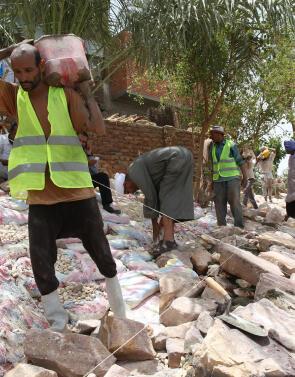
Policy brief
The Empowerment of Migrant Workers in a Precarious Situation: The Role of Labor Inspection
Date
July
2022
Across the globe, transnational migrants who are doing low-paid work in precarious situations experience widespread rights violations. The structures that create precarity for migrant workers and enable their exploitation are well understood. Less attention, however, has been directed to how the institutional design of labor inspection systems also drives precariousness by making rights enforcement inaccessible and ineffective for workers.
Abstract:
Across the globe, transnational migrants who are doing low-paid work in precarious situations experience widespread rights violations. The structures that create precarity for migrant workers and enable their exploitation are well understood. Less attention, however, has been directed to how the institutional design of labor inspection systems also drives precariousness by making rights enforcement inaccessible and ineffective for workers. In the UN Global Compact on Safe, Orderly, and Regular Migration, States have committed to enhancing the ability of labor inspectorates to protect migrants’ rights, making closer examination and reform both timely and necessary.

